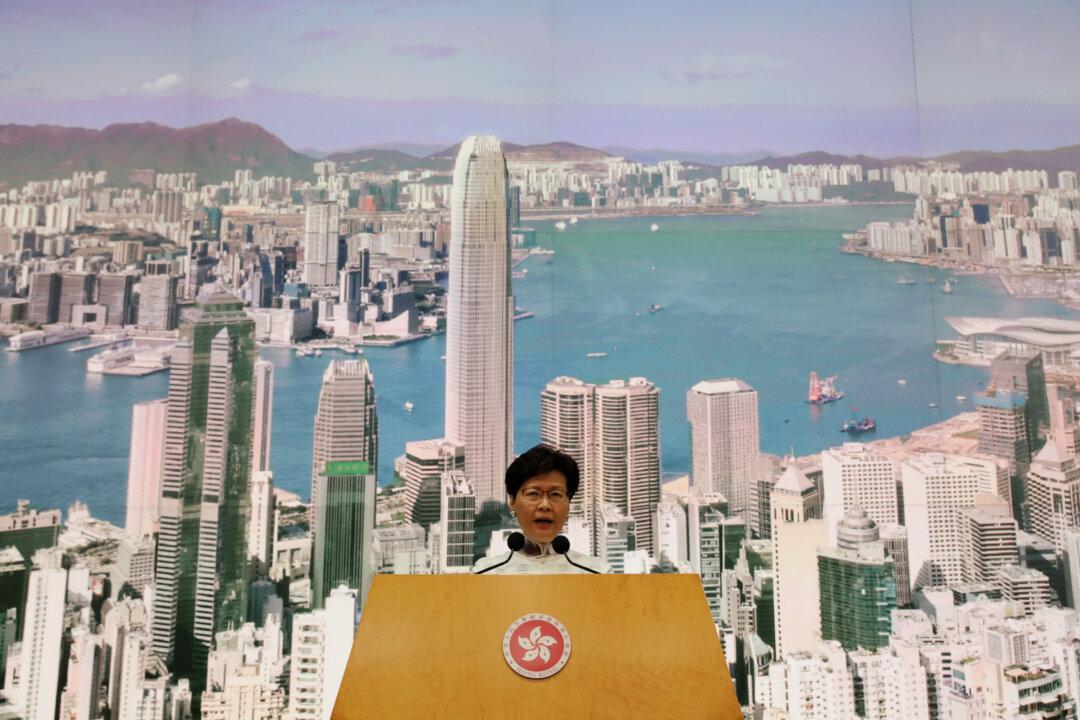Opponents of the controversial extradition bill that sparked mass protests in Hong Kong have called for the city’s Chief Executive Carrie Lam to scrap the bill entirely and resign, after she announced the proposed legislation would be suspended indefinitely on June 15.
Lam, in a news conference, said the bill would be halted with no deadline to bring it back—effectively suspending the process indefinitely.





